Unlike yogurt, supplemental probiotics don’t spoil or “go bad” if left unrefrigerated. But in order to ensure they retain their maximum activity we recommend keeping your probiotic products refrigerated during storage and after opening. This includes our Professional Protocol™ and Genesis of Good Health™ formulas as well as our powdered Zymes 4 Kidz™ two-in-one combo formula with Bifidobacterium infantis.
Microorganisms in general are susceptible to variations in temperature. Probiotics are no exception. The ideal conditions for handling and storage of our probiotics is cool (40-45ºF) and dry. So we recommend refrigerated storage, as this temperature keeps these “friendly” bacteria in a dormant state and will help maintain the colony forming unit (cfu) activity listed on the label.
Some probiotic products on the market have an enteric coating to enhance shelf life and/or eliminate the benefits of refrigeration. However, there are several drawbacks to enteric coating. That’s why we opt for refrigeration over enteric coating, and choose highly stable probiotic strains for our formulas.
Our manufacturing partners produce and bottle our probiotics under refrigerated conditions, and we purposefully “overfill” the capsules to allow for any slight losses during transit. This ensures the products meet or exceed the activity that’s stated on the label. Then, once received, we keep the probiotic products refrigerated in our warehouse prior to sale to ensure maximum activity for our customers.

What if it gets hot during shipping?
Transformation™ is based out of Houston, Texas, so we certainly know all about boiling hot temperatures. And as live cultures, there is always the possibility that probiotic supplements could lose a small amount of activity if the ideal cool temperature is not maintained continually. But we wanted to know exactly how much the activity is affected when our probiotic supplements are shipped. So we did a little experiment.
First, we got a device called a data logger that measures temperature. We set the data logger to record the internal temperature of the package every 5 minutes starting when the package was sealed. Then we put the data logger in a typical cardboard box with foam peanuts along with a bottle of Probiotic. Our next goal was to seriously create the worst possible conditions.
When did we ship it? Only the middle of August, the hottest month of the year! Where did we ship it? How about Arizona, one of the few places that gets even hotter than Texas!! How long did it take? We shipped it in a truck via UPS Ground Service. But even that wasn’t enough — we had the package refused and sent right back to us in Houston. Nine days in total so far. Then, once we received it back, we flew the bottle Overnight to a lab to be tested for colony count.
What did we learn? Even though it was in temperatures that exceeded 100°F during a 10-day total transit time, there was less than a 1% decline in colony count. The lab’s evaluation team also reported “all physical aspects of packaging, intact capsules, powder fill appear fresh and in good condition.”
Probiotics are cool!
Supplemental probiotics are a safe, effective way to support your native microbiota.* Yogurt and fermented foods contain “live cultures” that can be beneficial for sure, but they should not be compared to probiotic supplements. Transformation’s probiotic formulas include specific genera, species, and strains of bacteria that have been isolated and identified with certain characteristics. Additionally, our supplements are much more concentrated than the cfu activity in foods.
Again, our products won’t “spoil” or go bad if left out. But for general use and storage we always recommend refrigeration of probiotics. Even with the highly durable spore-based Transbiotic™ formulation which has a longer shelf life and is ideal for travelers, refrigeration is not required but still recommended for optimum activity. Check out our complete family of probiotic formulas below!
-
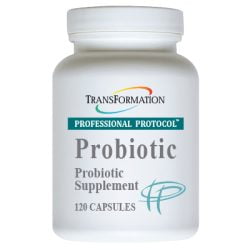
Probiotic
Price range: $23.99 through $65.99 Select options This product has multiple variants. The options may be chosen on the product page -
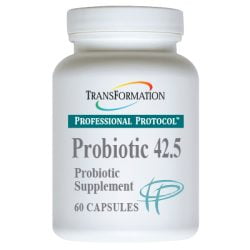
Probiotic 42.5
Price range: $64.99 through $105.49 — or subscribe to save 5% Select options This product has multiple variants. The options may be chosen on the product page -
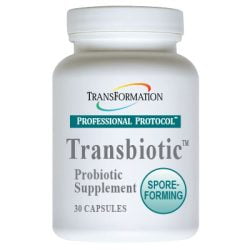
Transbiotic™
$36.99 — or subscribe to save 5% Read more -
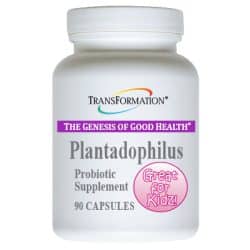
Plantadophilus
$32.99 — or subscribe to save 5% Read more -
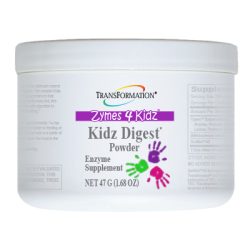
Kidz Digest* Powder
$54.99 — or subscribe to save 5% Add to cart
- How to Pick Your Probiotic - October 30, 2024
- Do Probiotics Require Refrigeration? - August 14, 2024
- Five Pillars of Health - October 18, 2023

Leave a Reply